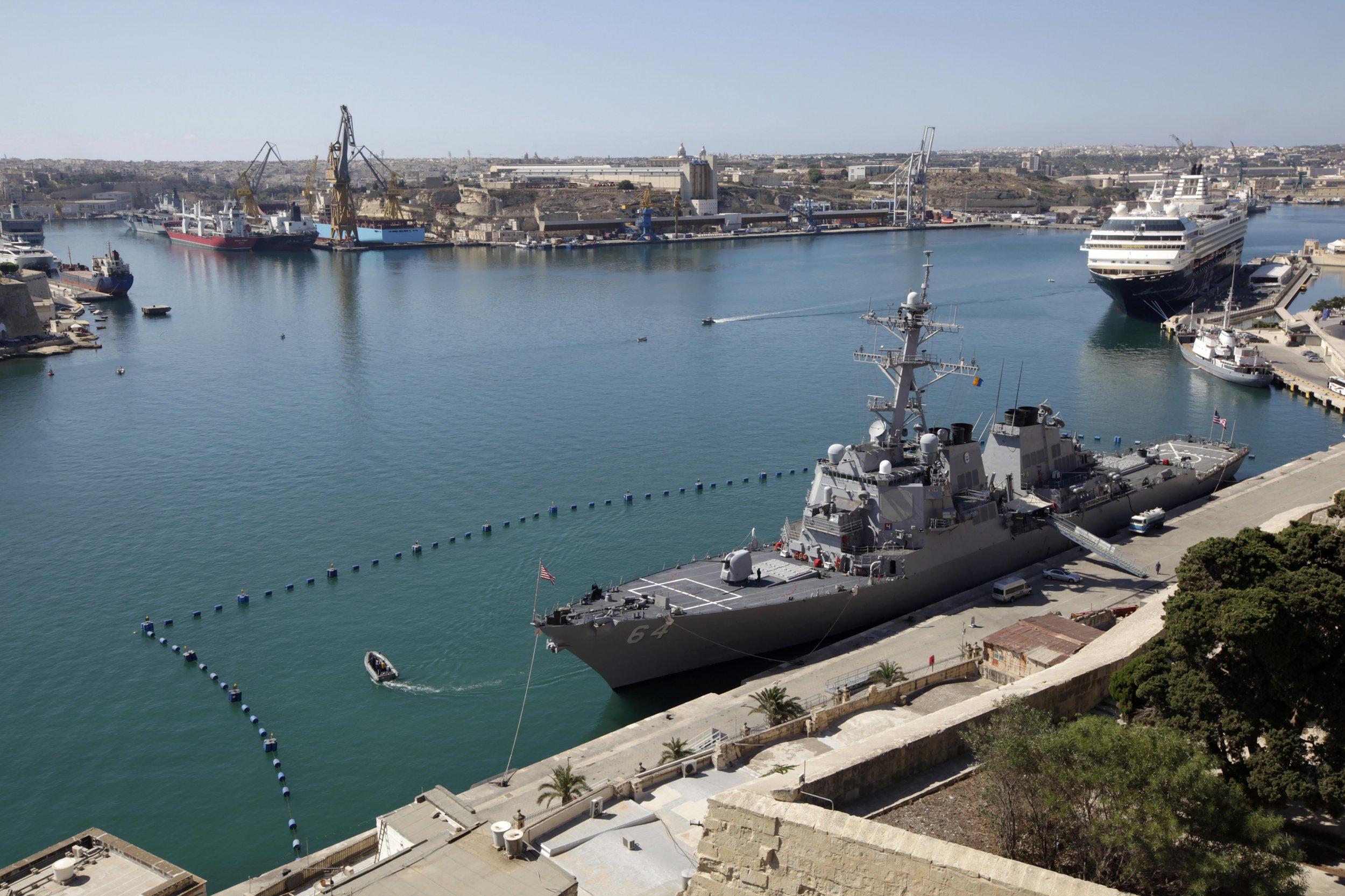
The U.S. Navy has sent a missile destroyer to Europe's Black Sea to join another warship, the USS Ross, in a move that risks irking Russia once again. Moscow has persistently objected to Western military activities in the waters, on whose shore sits Crimea—the peninsula Russia annexed from Ukraine in 2014.
The move is part of longstanding U.S. efforts to ensure the safety of its allies who share the Black Sea with Russia, namely NATO members Bulgaria, Romania and Turkey but also Ukraine and Georgia, who have expressed an interest in joining the alliance. Russia has repeatedly questioned the need for the U.S. or other Western powers to send forces in the Black Sea, often buzzing U.S. vessels there, resulting in several tense encounters.
Related: Preserved ruins that could date back to Roman times wash up on Black Sea beach
The USS Carney joined USS Ross in the Black Sea on Saturday, according to a statement by the U.S. Navy's 6th Fleet, for the first time since the two were sent on a drill in the waters last July.
Carney has since docked at Bulgaria's Varna port, while Ross arrived at Romania's Constanta port on Tuesday. Despite previous Russian requests to keep U.S. forces out of the region where Moscow once had four out of the five foreign navies under its thumb, a U.S. official told CNN the move sought to help "desensitize Russia" to the idea of an American presence there.
Since the annexation of Crimea, Russia has bolstered its own military capabilities in the region, despite Ukraine's insistence that it will not seek to retake the peninsula by force. Regardless, it is the second patch of Black Sea coastline to which Russia has sent forces to occupy land that is internationally recognized as belonging to another country. Russian troops also hold and have incorporated Abkhazia, formally still a region of Georgia, as part of Moscow's defense planning.
An incident in November resulted in a U.S. jet scrambling to evade a clash with an incoming Russian aircraft above the Black Sea, causing violent turbulence in an intercept the Pentagon branded "unsafe." Earlier this month the Russian Ministry of Defense issued a combative statement to U.S. jets flying in the region, saying that if they flew in the vicinity of Crimea, they should expect to be buzzed.
Russia's retired deputy commander of the air force, Nikolay Antoshkin, defended the November close call then and questioned once again why Russia should have to deal with the presence of U.S. military nearby.
"Americans have nothing to do in the Black Sea," he said at the time. "This is an enclosed sea."
Turkey has said the absence of a regional NATO force in the Black Sea allows Moscow to shape the sea.
Turkish President Recep Tayyip Erdogan in 2016 accused Moscow of regarding the sea as a "Russian lake" because of its Cold War history.
Uncommon Knowledge
Newsweek is committed to challenging conventional wisdom and finding connections in the search for common ground.
Newsweek is committed to challenging conventional wisdom and finding connections in the search for common ground.
About the writer
I am a Staff Writer for Newsweek's international desk. I report on current events in Russia, the former Soviet Union ... Read more
To read how Newsweek uses AI as a newsroom tool, Click here.








